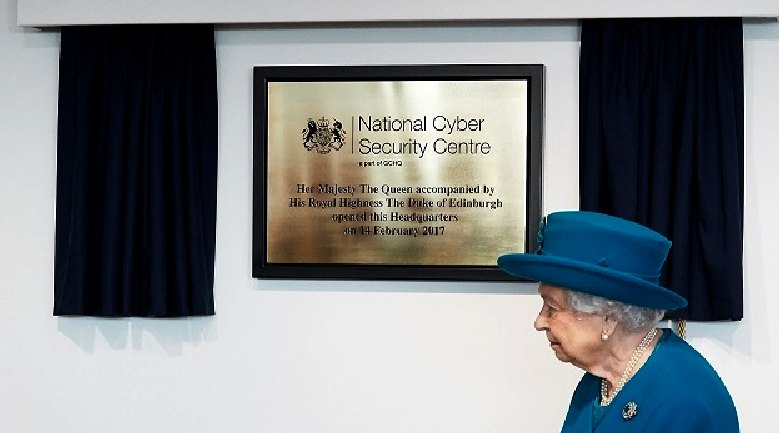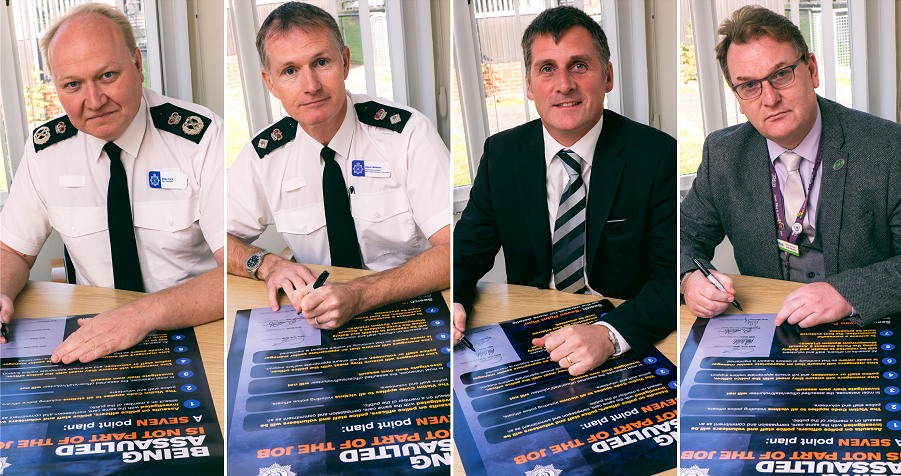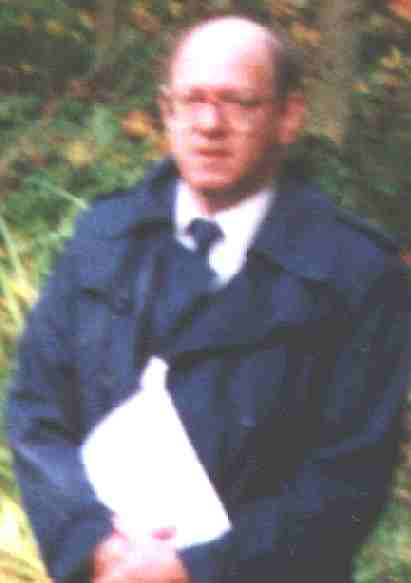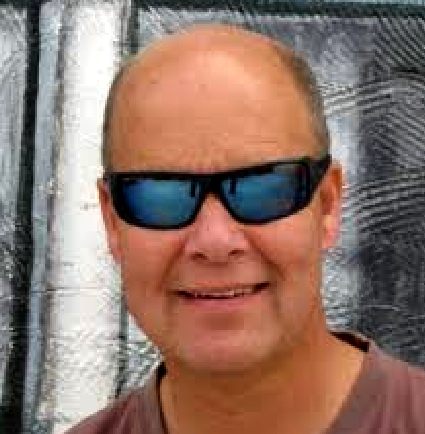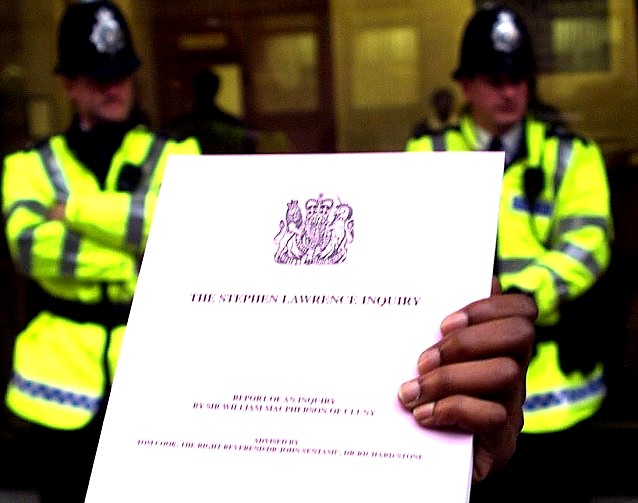|
REX v SUSSEX JUSTICES Ex Parte McCARTHY 1924
|
|
|
COMMON
LAWS OF ENGLAND - THE KING v. SUSSEX JUSTICES Ex parte McCARTHY
Arising out of a collision between a motor vehicle belonging to the applicant and one belonging to W., a summons was taken out by the police against the applicant for having driven his motor vehicle in a manner dangerous to the public. At the hearing of the summons the acting clerk to the justices was a member of the firm of solicitors who were acting for W. in a claim for damages against the applicant for injuries received in the collision. At the conclusion of the evidence the justices retired to consider their decision, the acting clerk retiring with them in case they should desire to be advised on any point of law. The justices convicted the applicant, and it was stated on affidavit that they came to that conclusion without consulting the acting clerk, who in fact abstained from referring to the case:- Held: the the conviction must be quashed, as it was improper for the acting clerk, having regard to his firm's relation to the case, to be present with the justices when they were considering their decision.
RULE NISI for a writ of certiorari to bring up, for the purpose of being quashed, a conviction of McCarthy, the applicant for the rule, for having driven a motor car on a certain highway in a manner which was dangerous to the public, having regard to all the circumstances of the case.
On August 22, 1923, a collision took place between a motor cycle driven by the applicant and a motor cycle and side-car driven by one Whitworth, and it was alleged that the latter and his wife sustained injuries in the collision. In respect of those injuries Messrs. Langham, Son & Douglas, solicitors, Hastings, by a letter dated August 28, 1923, made a claim on behalf of Whitworth against the applicant for damages, and the police, after making inquiries into the circumstances of the collision, applied for and obtained a summons against the applicant for driving his motor cycle in a manner dangerous to the public.
At the hearing of that summons on September 22, 1923, the applicant's solicitor, who stated in his affidavit that he had no knowledge of the officials of the court, inquired whether Mr. F. G. Langham, the clerk to the justices and a member of the said firm of Langham, Son & Douglas, was then sitting as a clerk, and was informed that he was not, but had been appointed a deputy for that day.
The case was then heard, and at the conclusion of the evidence the justices retired to consider their decision, the deputy clerk retiring with them. When the justices returned into the court they intimated that they had decided to convict the applicant, and they imposed a fine of 10 shillings and costs.
Thereupon the applicant's solicitor brought to the notice of the justices the fact, of which he said he had only become aware when the justices retired, that the deputy clerk was a brother of Mr. F, G. Langham, Son & Douglas, and so was interested as solicitor for Whitworth in the civil proceedings arising out of the collision in respect of which they had convicted the applicant.
The solicitor in his affidavit stated that had he known the above facts he would have taken the objection before the case began. This rule was thereafter obtained on the ground that it was irregular for the deputy clerk in the circumstances to retire with the justices when considering their decision.
In their affidavit the justices stated that the clerk to the justices, Mr F. G. Langham, was on holiday at the date of the hearing and had no knowledge of the proceeding, that in his absence his brother and partner Mr F. G. Langham acted as his deputy, that no formal objection was taken to the latter acting, that at the conclusion of the evidence the justices retired, the deputy clerk retiring with them in the usual way, taking with him the notes of the evidence in case they should be required, or in case the justices should desire to be advised upon any point of law, that in fact the justices came to their decision to convict the applicant without consulting the deputy clerk, who scrupulously abstained from referring to the case, and that the justices were not in any way biased by the fact that a member of the deputy clerk's firm had written the said letter before action.
The justices added that it appeared to them that the applicant's solicitor must have had knowledge of the deputy clerk's connection with the firm of Langham, Son & Douglas, and that he waived any formal objection; and that is a formal objection has been taken at the commencement of the proceedings the justices would have followed their usual course in such circumstances by adjourning the hearing and requesting the clerk to arrange with one of his colleagues from a neighbouring division to act at the adjourned hearing.
Russell Davies for the justices showed cause. However undesirable it may have been in the circumstances for the deputy clerk to retire with the justices when they were considering their decision, the fact that he did so does not invalidate the conviction, seeing that he took no part in the justices' deliberations.
[LORD HEWART C.J. In a recent unreported case,* this Court quashed a conviction where the chief constable, who was then prosecuting, retired with the justices]
There it was not the duty of the chief constable to retire with the justices; here it was the duty of the deputy clerk to do so in case the justices should desire to consult him upon any point of law. If, however, there was any irregularity in the proceedings, the applicant, through his solicitor; must be taken to have waived it.
*[He referred to Regina v Brakenridge (1) (1884) 48 J.P. 203]
W. T. Moncton for the superintendent of police, who had been served with the rule. H. D. Samuels in support of the rule was not called upon.
LORD HEWART C.J. stated the grounds of the rule and continued: It is clear that the deputy clerk was a member of the firm of solicitors engaged in the conduct of the proceedings for damages against the applicant in respect of the same collision as that which gave rise to the charge that the justices were considering. It is said, and, no doubt, truly, that when the gentleman retired in the usual way with the justices, taking with him the notes of the evidence in case the justices might desire to consult him, the justices came to a conclusion without consulting him, and that he scrupulously abstained from referring to the case in any way.
But while that is so, a long line of cases shows that it is not merely of some importance but is of fundamental importance that justice should not only be done, but should manifestly and undoubtedly be seen to be done.
The question therefore is not whether in this case the deputy clerk made an observation of offered any criticism where he might not properly have made or offered; the question is whether he was so related to the case in its civil aspect as to be unfit to act as clerk to the justices in the criminal matter.
The answer to that question depends not upon what actually was done but upon what might appear to be done. Nothing is to be done that creates even a suspicion that there has been an improper interference with the course of justice.
Speaking for myself, I accept that statements contained in the justices' affidavit, but they show very clearly that the deputy clerk was connected with the case in a capacity which made it right that he should scrupulously abstain from referring to the matter in any way, although he retired with the justices; in other words, his one position was such that he could not, if he had been required to do so, discharge the duties which his other position involved. His twofold position was a manifest contradiction.
In those circumstances I am satisfied that this conviction must be quashed, unless it can be shown that the applicant or his solicitor was aware of the point that might be taken, refrained from taking it, and took his chance of an acquittal on the facts, and then, on a conviction being recorded, decided to take the point. On the facts I am satisfied that being no waiver of the irregularity, and, that being so, the rule must be made absolute and the conviction quashed.
LUSH J. I agree. It must be clearly understood that if justices allow their clerk to be present at their consultation when either he of his firm is professionally engaged in those proceedings or in other proceedings involving the same subject matter, it is irrelevant to inquire whether the clerk did or did not give advice and influence the justices.
What is objectionable is his presence at the consultation, when he is in a position necessarily make in impossible for him to give absolutely impartial advice. I have no doubt that these justices did not intend to do anything irregular or wrong, but they have placed themselves in an impossible position by allowing the clerk in those circumstances to retire with them into their consultation room. The result, there being no waiver, is that the conviction must be quashed.
SANKEY J. I agree.
Rule absolute; conviction quashed.
Solicitors for the applicant: W. C. Crocker Solicitors for justices: Pettitt & Ramsey, for Langham Son & Douglas, Hastings. Solicitors for police superintendent: Taylor, Willcocks & Co., for Lawson Lewis, Eastbourne.
J.S.H.
HOME
SECRETARY - The work of the police watchdog is to expand dramatically in an effort to root out corruption within forces, the Home Secretary
Theresa May announced today.
THE BUCK STOPS HERE - Her Majesty Queen Elizabeth is the Head of State in the United Kingdom. Her Prime Minister is supposed to provide an effective administration and an effective remedy to counter injustices. Sadly, in the UK there is no right of appeal. Legal Aid is deliberately low to disadvantage defendants who cannot afford lawyers who might provide a reasonable level of defence. With the CCRC biased and incompetent, that only leaves the right of audience with the ruling Monarch under the 1689 Bill of Rights, before taking the matter international.
There are several agencies in the UK that are supposed to tackle fraud, cyber crime, drugs, sex trafficking and money laundering, but when you ask any one of them to take a look at corruption in Wealden-land, they don't appear too anxious to open a case file. It's more a case of pass the buck .... and keep passing it ... until the complainant fades away. Sorry to have to report this to you, Your Majesty, but it is the truth the whole truth and nothing but the truth - so help me God.
NEGLIGENCE: If your legal team do not mount a full defence, your right to a fair trial as per Article 6 may have been compromised. If the investigating officers decide to ignore evidence found at the alleged scene of a crime that points away from guilt, they have a duty to collect that evidence and present it to the defence as part of a fair and balanced investigation as per their Codes of Practice Order April 2005.
If they fail to do so in a manner that is designed to disadvantage any person who is accused of a crime, that falls to be considered as a subject for closer examination as to how their laxity may have affected the fairness of a trial that followed upon a defective evidence gathering trail. Once possible explanation for such mishap could be just that, a mishap, but when such laxity by the same local authority follows the accused, that is a subject for a court to decide on the facts if the accused could possibly have received a bias free trial.
BOTCHED INVESTIGATION - In the case in question Gordon Staker, James Hookway and Jo Pinyoun failed to secure the diaries of the Psychiatric Nurse, who hid her work diary in her loft to prevent Sussex police from including it in their evidence for disclosure. These officers also failed to include the hand written entries of the Psychiatric Community Nurse in the defendant's diaries, reminding him about Valentines Day. The Crown Prosecution Service obtained a conviction using a Valentines Day card sent to the claimant, without the defence being able to show why that was. In the absence of an explanation the Jury found the accused guilty, not based on any eye witness testimony other than that of the complainant, but also including junk science in the equation where a perfectly innocent and naturally occurring mark on the girl's hymen was said to be indicative of assault - when in fact all women and girls have such features from a young age.
The CPS further disadvantaged the defence by not supplying colour photocopies of selected diary pages to enable the defence to disprove an allegation as to menstruation cycles on the part of the Psychiatric Community Nurse.
We consider that the standard of investigation by these police officers constitutes a serious malfeasance in public officer where they worked together to conceal the evidence that the defence needed to mount any kind of robust rebuttal.
SUSSEX POLICE A - Z OF OFFICER INVESTIGATIONS
Victorio Patrick Scarpa, Christine Nuttall, David Phillips, Charles (Charlie) Lant and Derek Holness
Kelvin Williams, J. Douglas Moss and Ian M. Kay
THE WEALDEN SUSSEX POLICE CONNECTION
The above picture is of Victorio Patrick Scarpa over 10 years ago, also Christine Nuttall & David Phillips. David Phillips was still working for WDC as of 2018. He was the enforcement officer working with Vic Scarpa concerning an allegations of a malicious prosecution - a series of malfeasances in public office that probably deserves at least one life sentence. How many other officers might have been involved, or know enough to be able to blow the whistle? We know Christine Nuttall and Vic Scarpa were the solicitors preparing fraudulent papers for this council for this series of cases as part of a conspiracy. Derek Holness and Charles Lant are also involved in the mix somewhere. Derek Holness retired on an enhanced pension in the wake of the Petition to Wealden District Council seeking to correct many injustices.
The Council claimed that they did not have the remit to investigate the allegations that were criminal by definition and identified as such by the Petition Panel. These matters were referred to Sussex police by Lord Newton and Nelson Kruschandl. But that there was no investigation into the allegations being made of a criminal nature from 12 unrelated complainants. The police officer who took the referral was DC Keith Lindsay. DC Lindsay failed to contact any of the complainants to take their evidence. It is of course a crime to fail to investigate a crime, meaning that Keith Lindsay has a case to answer as to why he failed to mount and investigation, where clearly, with this matter being reported in the press, it was in the public interest that there should be an investigation.
The lack of investigation is a crime that does not go away. Especially where a conviction was obtained against a member of the public who was taking cases as a volunteer and winning appeals. It therefore suited Wealden and was most convenient for their allies in what looks to be a deception of the public, to discredit the person who was unraveling several of the planning enforcement cases to embarrass the Council in revealing the extent of their underhanded tactics in planning legal matters.
Without any form of investigation at all, the CPS (not sure what branch) were apparently involved to the extent that they said there was no case to answer. Presumably for a lack of evidence. Obviously, because there had been no evidence gathering and no statements taken. We understand that there is no recorded Crime Number.
With Sussex police involved in what amounts to a perversion of the course of justice, and a conspiracy in the matter, it cannot be that Sussex police should be called to gather evidence for the CPS to prosecute that member of the public who was shouting about these perversions of justice.
In such circumstances, the CPS should at the very least have appointed an impartial police authority to conduct any investigation, to be sure to eliminate the possibility of bias. But the CPS did not do so for the very reason that they needed to retain control and prevent any possibility of their past collusion being uncovered.
HOW IS BIAS EXPLAINED ?
Confirmation Bias
Expectation Bias
The most important criminal decision-makers are prosecutors. Prosecutors – individuals who decide whether and who to charge with a crime, and what crime – are the officials with the most un-review-able power. Prosecutors typically make charging decisions based on police files, rather than direct contact with the suspect.
Even if most prosecutors are not intentional bad
actors (like the rest of us) they suffer from unconscious bias. In several studies, white subjects viewed blacks as social threats automatically and without conscious intent. Indeed, this same phenomenon has been documented in virtually every area in which it has been studied.
https://www.independent.co.uk/news/uk/politics/police-watchdog-given-new-powers-by-theresa-may-to-root-out-corruption-8491961.html https://www.theguardian.com/uk/2010/feb/14/soca-crime-agency-police-corruption https://www.channel4.com/news/new-police-corruption-alleged-in-secret-report http://google-law.blogspot.com/2014/02/uk-police-have-devolved-into-corrupt.html https://www.dailymail.co.uk/debate/article-2357977/A-vicious-crime-boss-corrupt-police-cronies-scandal-buried-ever.html
|
|
FAIR USE NOTICE
This site contains copyrighted material the use of which has not always been specifically authorized by the copyright owner. We are making such material available in our efforts to advance understanding of environmental, political, human rights, economic, scientific, and social justice issues, etc. We believe this constitutes a 'fair use' of any such copyrighted material as provided for in section 107 of the US Copyright Law. In accordance with Title 17 U.S.C. Section 107, the material on this site is distributed without profit to those who have expressed a prior interest in receiving the included information for research and educational purposes. |
|
|
This site is protected under Article10 of the European Convention on Human Rights and Fundamental Freedoms. |



